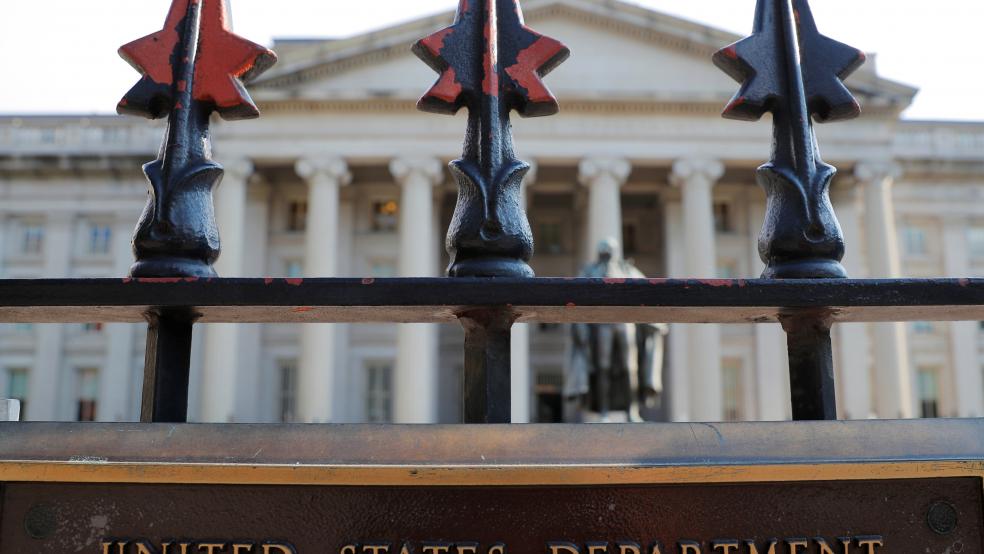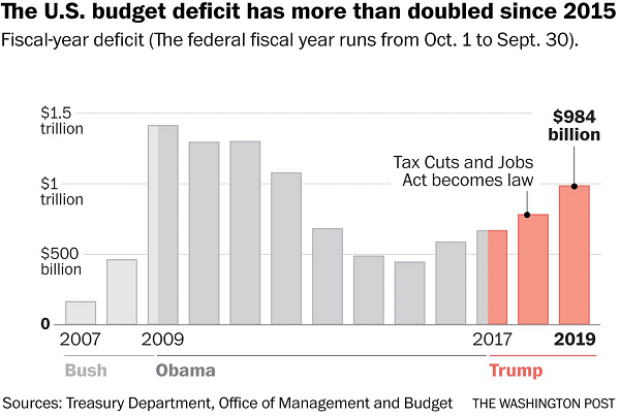The federal government’s budget deficit grew to $984 billion in fiscal year 2019, the U.S. Treasury announced Friday.
The final tally for 2019 is $205 billion larger than in 2018, a 26% increase. As a percentage of GDP, the deficit was 4.6% — 0.8 percentage points higher than the previous year.
Deficits have nearly doubled under President Trump, despite solid economic growth and low unemployment — and despite Trump’s vow to eliminate the federal debt in eight years. The Republican tax cut legislation of 2017 reduced revenues relative to projections, and bipartisan spending deals have raised spending. The Treasury estimates that the deficit will exceed $1 trillion next year, and budget experts expect it to remain above that level for years to come.
For 2019, receipts totaled $3.4 trillion, 3.8% higher than the previous year, while federal spending rose 8.2% to $4.4 trillion. Revenues as a share of GDP fell to 16.3%, down from 16.4% the year before, while outlays rose to 20.9% of GDP, up from 20.2%.
Some of the biggest increases were recorded in the Medicare program, where spending rose 10% to $783 billion; the Defense Department, where spending rose 8% to $654 billion; and net interest on the national debt, which rose almost 16% to $376 billion. Tariff fees, driven by President Trump’s ongoing trade wars, also rose significantly, up 71% to $70.8 billion.
In a statement accompanying the release, Treasury Secretary Steven Mnuchin said, “President Trump’s economic agenda is working. … In order to truly put America on a sustainable financial path, we must enact proposals -- like the president’s 2020 budget plan -- to cut wasteful and irresponsible spending.”
The fiscal hawks at the Committee for a Responsible Federal Budget were less generous. “A deficit of this size following the longest span of economic growth in history shows just how reckless our leaders have become,” said CRFB co-chair Leon Panetta. “This is exactly the time when deficits should be contracting, not expanding. But instead of getting our fiscal house in order and preparing for the next downturn, our leaders continue to binge on debt rather than showing the leadership necessary to set our fiscal path.”
The conversation about the debt is muted at best in Washington. “There is very little discussion among Republicans about the deficit, and virtually no serious outreach to Democrats for any sort of bipartisan deal,” Brian Riedl, a budget expert at the conservative Manhattan Institute, told The Washington Post. “The parties are not talking on this issue.”





